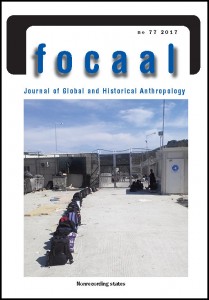This post is part of a feature on anthropologists on the EU at 60, moderated and edited by Don Kalb (Central European University and University of Bergen).
Earlier this year, a curious incident occurred in Auckland that ignited a heated debate over the meaning of the term “European.” A new student club calling itself the Auckland University European Students Association announced it was withdrawing its applications to affiliate to the university on the eve of the new semester’s orientation week. The withdrawal came after members of the club were threated with violence and accused by people both on and off campus of racism. This controversy erupted because of the images posted on the group’s website, including Celtic symbols used by US white supremacists and paintings depicting the unification of Germany. The group’s Facebook page included an image of Captain Cook and the motto “our pride is our honour and loyalty,” a phrase reminiscent of the Nazi SS slogan, “my honour is called loyalty.”
